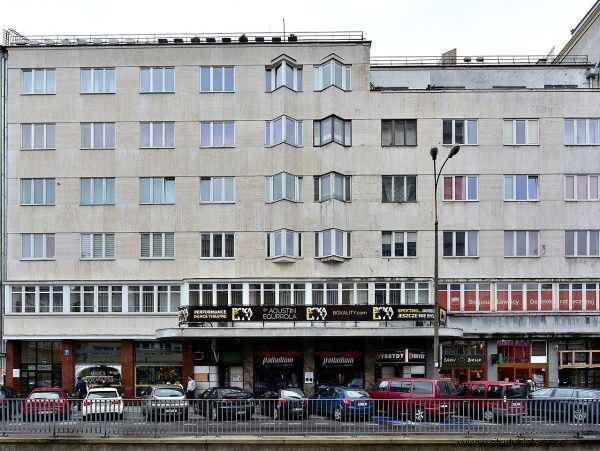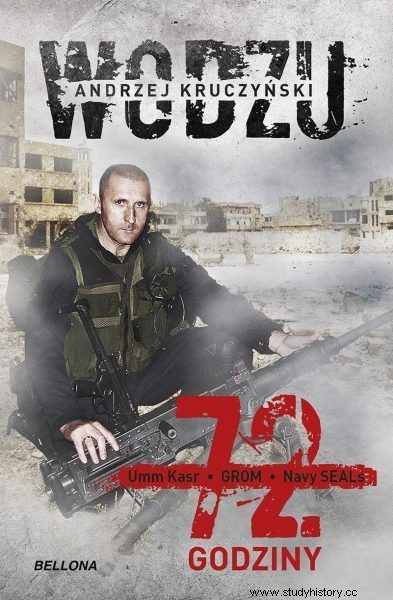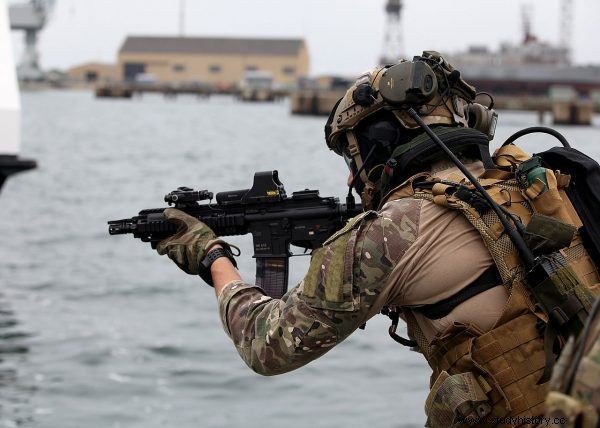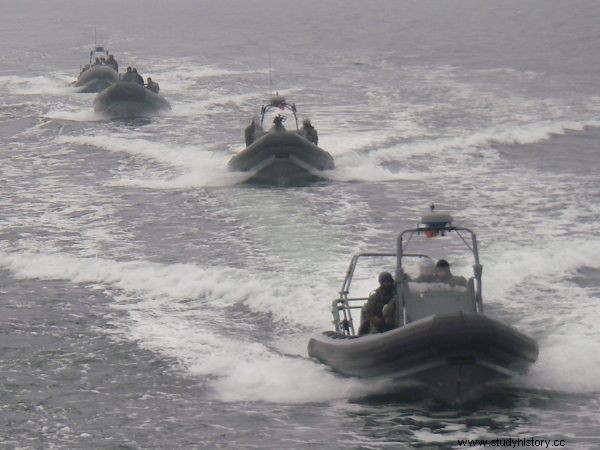During his lifetime, some called him a visionary. From an early age he was an exceptionally aggressive man and easily got into conflicts. Maybe it was this feature that decided that in the 90s, contrary to the opinion of the rest of the generals, he created the first fully professional Polish special forces unit - GROM?
Sławomir Petelicki is a figure who combines the times of the People's Republic of Poland and the Third Republic of Poland. He has smoothly moved from the intelligence formations of the old system to creating a new quality in the Polish uniformed services. Probably as one of the few he was aware of the dangers lurking in the path of a democratizing Poland.
He could easily recognize weaknesses in security systems that no one wanted to hear about. He was helped by a long-term interview. He also had one rare feature that gave him a good chance of success - continuously from his teenage years learned from the wiser and followed their advice .
Backyard hoodlum
The future general was born on September 13, 1946 in Warsaw, in a family with military traditions. Both his father and mother served in the Polish People's Army. He grew up in the Czerniaków district of Warsaw, where he was a valued backyard bouncer. His brother, recalling those times, remembered the joking remark of their mutual friend, which quite well reflects the character of the young Sławek:
I don't remember which of our colleagues, looking at me, said:"These are hands that heal," and then turned to Slawek:" And these are hands that hurt.
Interestingly, Petelicki boasted from an early age that he would become a commando. The young and fledgling Warsaw thug quickly understood that muscle strength must be used wisely. Probably the experience of working as ... a goalkeeper in the Hybrydy club in Warsaw turned out to be invaluable.

In his youth Sławomir Petelicki was ... a goalkeeper at the Hybrydy club, which is located in the building in the photo.
Many people in such a place end their careers and do not go any further. Petelicki had the advantage that he was surrounded by people who knew how to steer him. According to the accounts of his relatives, it was his grandfather who suggested that he choose a career in uniformed services and pushed him towards the army.
Recruitment to the Ministry of Foreign Affairs
In the meantime, however, Petelicki went on to study - and in law - at the University of Warsaw. He graduated in 1970 without having to worry about a job… because he already had one. A year earlier, he started working at the Ministry of Foreign Affairs, where he was prepared for operational tasks in various parts of the world. The way he prepared for his diploma shows his personality perfectly. As his brother said:
I think that what he did he did with great passion and made his dreams come true. For example:when he was graduating in law, he came up with a master's thesis, the subject of which was extremely difficult. I remember this title:Ways and means of illegal communication between arrested persons, with special emphasis on remand prisoners. He even allowed himself to be imprisoned to develop an "alphabet" of these people. [...] I think he was sitting on Rakowicka Street, with ordinary criminals, to write this work .
After graduation, Petelicki spent several years in diplomatic missions in Vietnam and China. Then he was sent to New York, where he dealt with economic intelligence - after all, the socialist homeland was technologically ailing. The Americans, however, were not deceived - they were sure from the beginning that they were dealing with a secret service emissary.

In the 1980s, the former Hybryd goalkeeper went to Sweden, where he tried to surveillance the Polish community and the opposition. Finally, in 1989, he took the position of the head of the Post Security Department in the Communications Department of the Ministry of Foreign Affairs.
July 13, 1990
Although he served for People's Poland for 21 years, Petelicki was positively assessed by the Solidarity elite. There seems to have been some luck in this. However, he did not wait for additional invitations. Almost immediately after the breakthrough, he launched a revolutionary project. "Of course, at that time no one, including General Petelicki, had yet realized what a colossal role
would be played by well-equipped and trained units (...) and very efficient in action" - he comments in the book "72 hours " Andrzej Kruczyński.
As the general himself mentioned in one of the interviews, he presented his crazy ideas to create a unit like the American Delta Force or the British SAS ... in the corridor. His interlocutors were two young workers from the new haul - Bartosz Sienkiewicz and Wojciech Brochwicz. This is how he recalled the moment:
I went to the high-ranking officials of the Office of State Protection who knew everything about me. And at the same time, I was sure that in the face of current and foreseeable threats GROM's design meets the needs of state security […]. Without their help, it would not exist…

According to Petelicki, the creation of a special unit was crucial from the point of view of state security. The photo shows a commando from GROM in 2015.
This conversation gave Petelicki hope that the formation he had invented would actually come into being. As a result, he gained the support of his superior - the Minister of Internal Affairs, Krzysztof Kozłowski. On July 13, 1990, the latter issued an appropriate order (no. 001/90) to create a special unit. Later, Sławomir Petelicki stated more than once that he was lucky to be thirteen all his life. In an interview with Michał Komar he admitted:
I was born on September 13th, Friday. On July 13, also on Friday, Minister Kozłowski signed the order to form GROM. The first GROM group ready for action consisted of thirteen soldiers . Thirteen is on the banner of Unit 2305.
The decision of Minister Kozłowski allowed for the creation of a training ground and the collection of equipment that was at the disposal of the Ministry of National Defense. The enterprising general, thanks to various measures, acquired the area to exercise; He was also thinking more and more boldly about recruiting to GROM. Finally, he also managed to get the support of the Americans, who not only provided our soldiers with modern weapons, but also helped in their training. Let us give the floor to one of those found among the first members of this formation. Andrzej Kruczyński in the book "72 hours" writes:
[...] coming up with a unit like GROM was amazing. The earlier method of training the army, and in particular the secret services, completely differed from the concept that was born in the mind of General Petelicki. It can be safely said that he was a visionary .

GROM commandos practiced, among others, in the company of American units, including Navy SEALS.
These words of praise and appreciation may be disturbing, because we do not have too many people in the country who have managed to turn a crazy idea into an international success. After the first years, full of hardships, sacrifices, but also great enthusiasm on the part of younger officers, the period of stabilization has come.
GROM became part of the state structure and gained recognition and support from Western allies. His first big action - the attack on the oil platform at Umm Kasr - was a spectacular success. Kruczyński admits, however, that it was not easy at the beginning:
General Petelicki often recalled the beginnings of our unit and talked about the tricks he had to resort to in order to succeed. No matter how, it worked out . GROM was allocated several rooms at Podchorążych Street, i.e. in the center of Warsaw, at the headquarters of the Vistula army.
It was a great place, because at the beginning of its existence the unit operated within the structures of the Ministry of the Interior for several years. I have to admit that, in order for it to be so, the general performed brilliantly.
A specific bargaining chip in various negotiations - as Kruczyński recalls - became, among others, demonstrations of their skills prepared by commandos. At that time, Petelicki showed his superiors not only the efficiency of his people, but also his trust in them - he often acted as a hostage! "How can you risk your life like this? What for?! But that's what the general was like. He believed in his people, in our abilities, "explains Kruczyński.

30 years of experience
Sławomir Petelicki designed a formation that has been guarding the country's security and Poland's interests in the world for almost thirty years. Of course, there are many criticisms as to its functioning. However, they often result from an ad hoc political calculation rather than from a realistic assessment of GROM's capabilities.
Unfortunately, the creator of our commando unit alone can no longer follow the development of "his" unit. In 2012, he committed suicide. The circumstances of this event gave rise to various speculations, although the law enforcement agencies did not find any irregularities.
Check where to buy "72 Hours":
